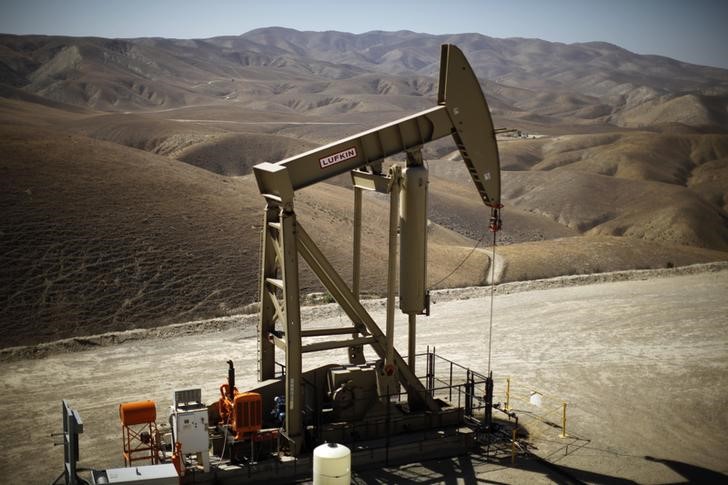Investing.com – Crude prices fell for a third day in a row as trading began in Asia Thursday, responding to a report by industry group API that the largest weekly crude stockpile build in eight months may have taken place in the United States last week.
After Monday’s 4% price rally on the back of the worst outbreak in decades of fighting between Israeli and Palestine troops that raised concerns about oil exports from the Middle East, crude markets have taken on an unnatural, eerie calm in the past two days as it became clear the market may have overreacted to the crisis.
As such, crude prices gave back more than 3% of those gains in the last 48 hours, particularly after a Reuters report that Saudi Arabia’s state oil firm had informed at least four refiners in North Asia that it would supply them with the full contractual volumes nominated for November.
The pledge by Saudi Aramco (TADAWUL:) ran against the very grain of what Riyadh had been publicly telling global oil markets — that its priority was about keeping the market tight, not assuring that supplies were generously available whenever needed.
On Wednesday, the optics for the oil market worsened further after API, or the American Petroleum Institute, reported that US possibly rose by nearly 13 million barrels last week in what could be the highest build since February.
By Thursday afternoon in Singapore, New York-traded West Texas Intermediate, or , crude for delivery in November was down 31 cents, or 0.4%, at $83.18 per barrel by 12:40 in Singapore (00:40 Eastern US Time). From Monday’s high of $87.24, the benchmark US crude benchmark had fallen to a low of $82.78 in the last session.
“Going into the new trading day, moving below $82.35 would increase the bearish bias with the next support (being) at the low (of) last week, at $81.56,” markets’ analyst Greg Michalowski said in a posting on the ForexLive forum.
A super bullish narrative to a suspect one in 3 days
London-traded crude for the most-active December contract was down 22 cents, or 0.3%, at $85.60 in the latest session. On Monday Brent reached a high of $89.00 but Thursday it struck a low of $85.19.
“The oil market narrative had gone from a super bullish to suspect in just three days,” said John Kilduff, partner at New York energy hedge fund Again Capital.
Aside from last week’s humongous crude build, the API said — the No. 1 US fuel product — rose by 3.645M, adding to the previous week’s gain of 3.946M, the API said.
The only real bullish element in the API report was the drop of 3.535M barrels for distillates — a feedstock for diesel and heating fuel — versus the prior week’s build of 0.349M.
The API also noted a 0.547M barrel drop in storage levels at the Cushing, Oklahoma delivery point for US crude, versus the previous week’s rise of 0.705M. That prior week’s build was the first in months for Cushing. Until that week, there had been fears that Cushng stockpiles may drop to such critically low levels that would complicate any more withdrawals from the storage hub.
The API numbers serve as a precursor to official inventory data on the same due from the U.S. Energy Information Administration on Thursday.
For last week, analysts tracked by Investing.com expect the EIA to report a drop of 0.37 million barrels, versus the 2.224-million barrel reduction reported during the week to Sept. 29.
On the front, the consensus is for a draw of 1.5M barrels over the 6.481M-barrel jump in the previous week. Automotive fuel gasoline is the No. 1 U.S. fuel product.
With , the expectation is for a drop of 1.5M barrels versus the prior week’s drop of 1.269M. Distillates are refined into , diesel for trucks, buses, trains and ships and fuel for jets.
Read the full article here



